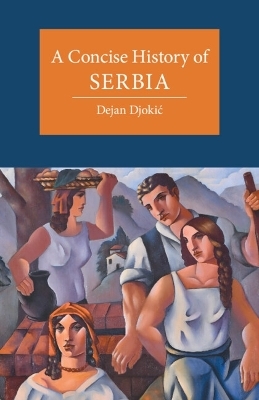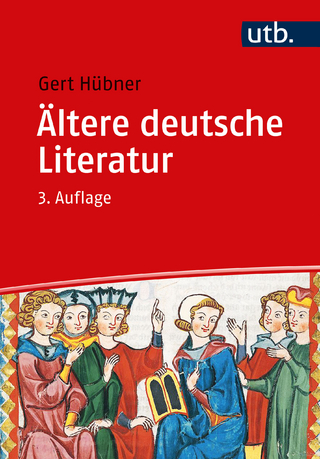
A Concise History of Serbia
Seiten
2023
Cambridge University Press (Verlag)
978-1-107-63021-5 (ISBN)
Cambridge University Press (Verlag)
978-1-107-63021-5 (ISBN)
This accessible and engaging single-volume history of Serbia covers the full span of history, from the sixth-century Slav migrations up to the present day. It traces key developments surrounding Serb states, institutions, and societies, while incorporating the individual experiences and perspectives of ordinary people.
This accessible and engaging book covers the full span of Serbia's history, from the sixth-century Slav migrations up to the present day. It traces key developments surrounding the medieval and modern polities associated with Serbs, revealing a fascinating history of entanglements and communication between southeastern and wider Europe, sometimes with global implications. This is a history of Serb states, institutions, and societies, which also gives voice to individual experiences in an attempt to understand how the events described impacted the people who lived through them. Although no real continuity between the pre-modern and modern periods exists, Dejan Djokić draws out several common themes, including: migrations; the Serbs' relations with neighbouring empires and peoples; Serbia as a society formed in the imperial borderlands; and the polycentricity of Serbia. The volume also highlights the surprising vitality of Serb identity, and how it has survived in different incarnations over the centuries through reinvention.
This accessible and engaging book covers the full span of Serbia's history, from the sixth-century Slav migrations up to the present day. It traces key developments surrounding the medieval and modern polities associated with Serbs, revealing a fascinating history of entanglements and communication between southeastern and wider Europe, sometimes with global implications. This is a history of Serb states, institutions, and societies, which also gives voice to individual experiences in an attempt to understand how the events described impacted the people who lived through them. Although no real continuity between the pre-modern and modern periods exists, Dejan Djokić draws out several common themes, including: migrations; the Serbs' relations with neighbouring empires and peoples; Serbia as a society formed in the imperial borderlands; and the polycentricity of Serbia. The volume also highlights the surprising vitality of Serb identity, and how it has survived in different incarnations over the centuries through reinvention.
Dejan Djokić is Professor of History at Goldsmiths, University of London. He is the author of three monographs, (co-)editor of four books and recipient of prestigious grants and fellowships from the AHRC, The British Academy, The Leverhulme Trust, Alexander von Humboldt Foundation, Columbia University, New York and Woodrow Wilson Center, Washington, DC. He is the founding Director of the Centre for the Study of the Balkans at Goldsmiths.
Introduction; 1. Migration (up to c1150); 2. Empire (c1170–1459); 3. Borderland (1450–1800); 4. Revolution (1788–1858); 5. Independence (1860–1914); 6. War and interwar (1914–1944); 7. Federation to fragmentation (1945–1991); 8. Ruin and recovery (after 1991); Further reading; Index.
| Erscheinungsdatum | 18.01.2023 |
|---|---|
| Reihe/Serie | Cambridge Concise Histories |
| Zusatzinfo | Worked examples or Exercises |
| Verlagsort | Cambridge |
| Sprache | englisch |
| Maße | 136 x 215 mm |
| Gewicht | 710 g |
| Themenwelt | Geschichte ► Allgemeine Geschichte ► Mittelalter |
| Geisteswissenschaften ► Geschichte ► Regional- / Ländergeschichte | |
| ISBN-10 | 1-107-63021-5 / 1107630215 |
| ISBN-13 | 978-1-107-63021-5 / 9781107630215 |
| Zustand | Neuware |
| Haben Sie eine Frage zum Produkt? |
Mehr entdecken
aus dem Bereich
aus dem Bereich
eine neue Geschichte des Mittelalters
Buch | Hardcover (2023)
C.H.Beck (Verlag)
38,00 €


